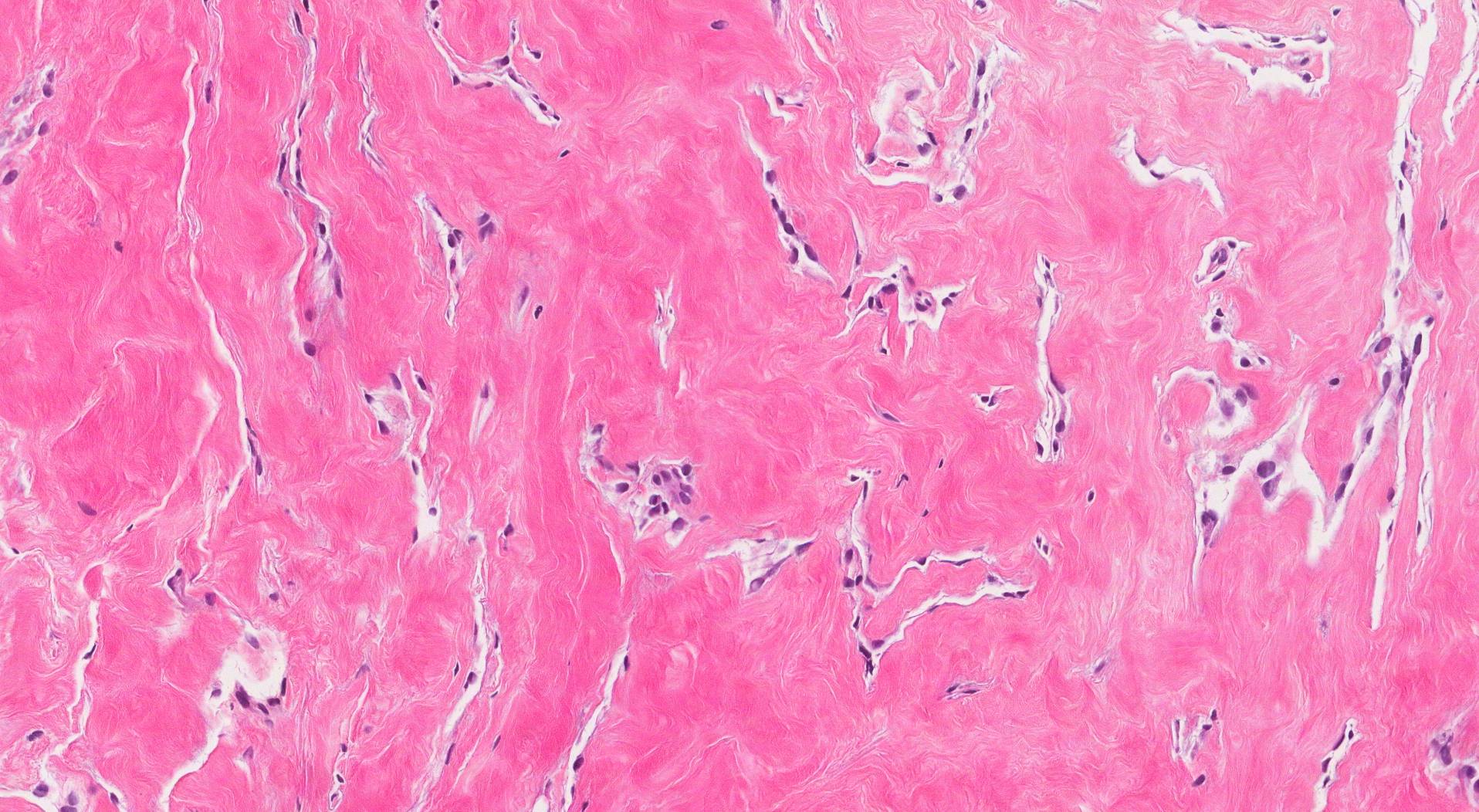by Jason Wasserman MD PhD FRCPC
November 19, 2023
Pseudoangiomatous stromal hyperplasia (PASH) is a non-cancerous growth in the breast. It is made up of specialized cells called myofibroblasts. The growth is called “pseudoangiomatous” (which means “like blood vessels”) because the myofibroblasts form small slit-like spaces that look similar to blood vessels when examined under the microscope.
What causes PASH?
PASH appears to be caused by hormonal imbalances, in particular the sex hormone progesterone.
Is PASH associated with an increased risk of developing breast cancer?
Some studies have shown that PASH is associated with a very small increased risk of developing breast cancer over time. However, more studies are necessary and the science remains unclear at this time.
Is PASH considered a precancerous condition?
No, PASH is not a precancerous condition and it will not turn into breast cancer over time.
What are the symptoms of PASH?
For most patients, PASH does not cause any symptoms and is found incidentally (by accident) when examining breast tissue for another reason. However, for some patients, the area with PASH will become large enough that it can be felt as a lump in the breast. Very rarely, PASH can grow very quickly in one or both breasts mimicking a cancerous tumour. Even when PASH grows quickly, it is not a cancerous tumour.
How is the diagnosis of PASH made?
The diagnosis of PASH is made after tissue from the breast is removed and sent to a pathologist for examination under a microscope. The diagnosis can be made after a surgical procedure called a biopsy is performed to remove a small amount of tissue or after a larger area of tissue is removed in an excision or resection. PASH is often an incidental diagnosis, which means it is found when examining the breast tissue for another reason.

About this article
This article was written by doctors to help you read and understand your pathology report. Contact us if you have any questions about this article or your pathology report. Read this article for a more general introduction to the parts of a typical pathology report.



